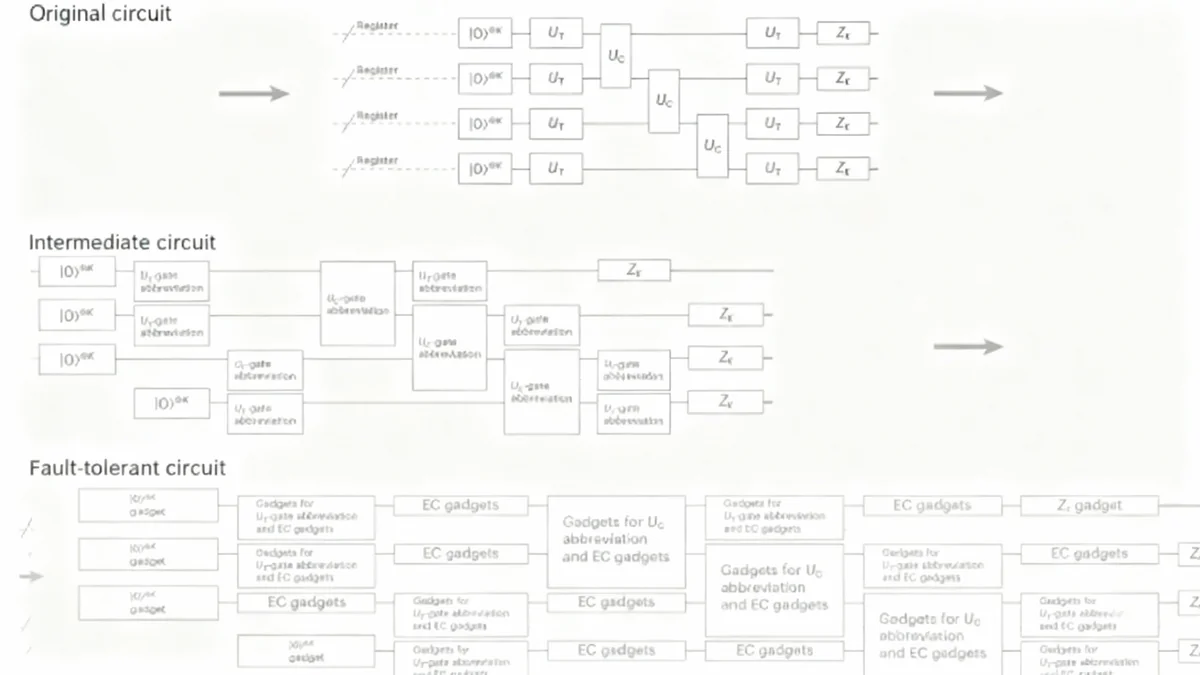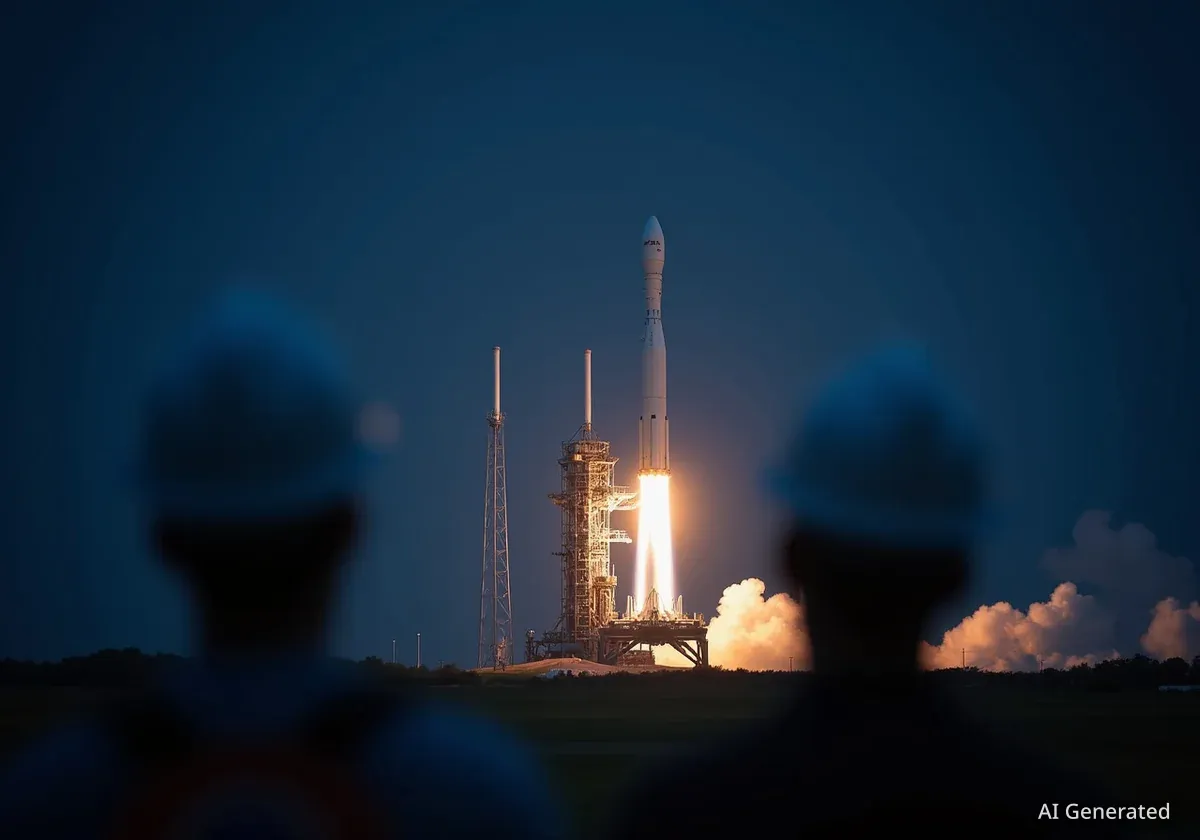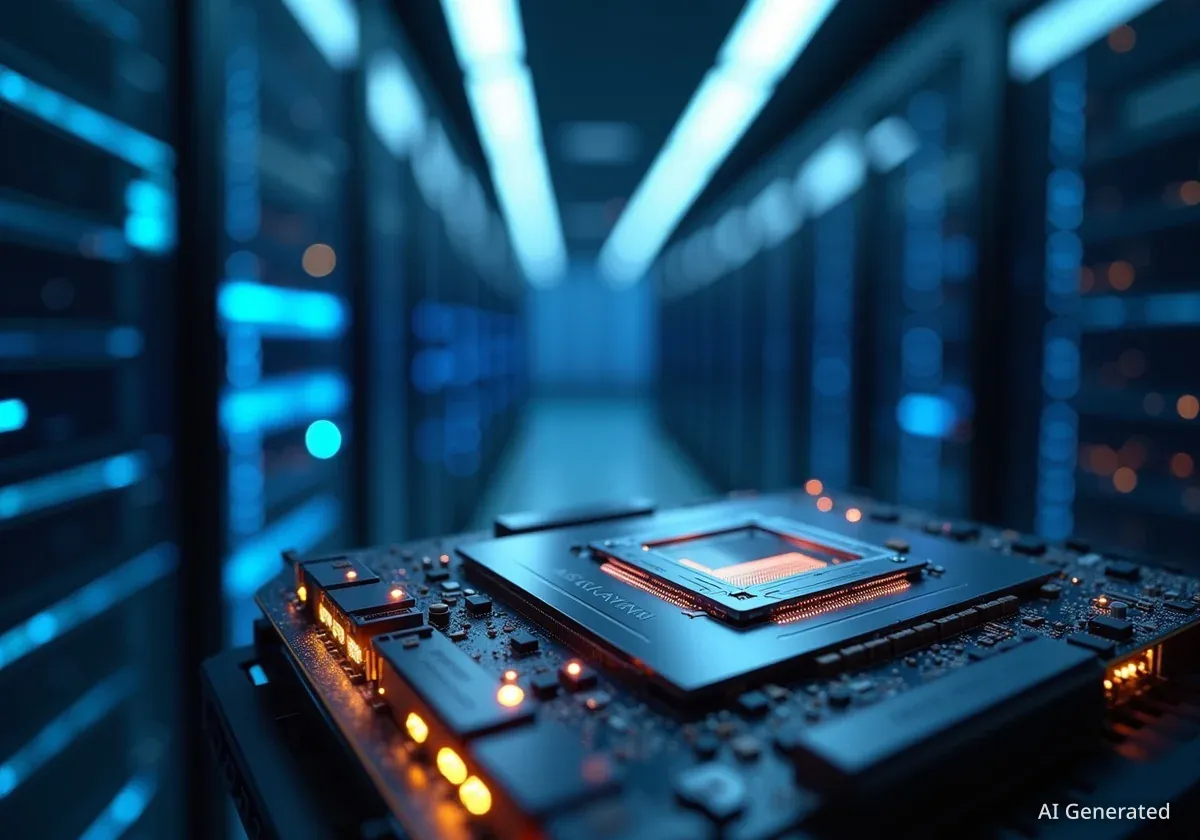Quantum computing company IonQ has signed a Memorandum of Understanding (MOU) with the U.S. Department of Energy (DOE) to advance the deployment of quantum technologies in space. This collaboration aims to conduct an in-orbit demonstration focused on quantum-secure communications and other space-based applications.
The agreement formally brings IonQ into the DOE-led Quantum-in-Space Collaboration, a group dedicated to exploring the practical uses of quantum systems beyond Earth. The partnership will investigate how quantum technology can address national priorities, including creating secure alternatives to GPS and enabling new forms of quantum networking.
Key Takeaways
- IonQ and the U.S. Department of Energy (DOE) signed a Memorandum of Understanding (MOU) to collaborate on quantum technology in space.
- The primary goal is to perform an in-orbit demonstration of quantum-secure communications.
- The partnership will also explore quantum applications for secure navigation (GPS alternative), resource exploration, and in-space manufacturing.
- This initiative follows IonQ's strategic acquisitions of quantum networking firm Qubitekk and SAR imaging company Capella Space.
A Strategic Agreement for Orbital Quantum Systems
The newly signed MOU establishes a formal framework for IonQ and the DOE to work together on moving quantum computing from terrestrial labs into the challenging environment of space. The core objective is to test and validate quantum technologies in orbit, which is a critical step toward their operational deployment.
This partnership is part of a broader government effort to accelerate the development of quantum capabilities. By collaborating directly with a commercial leader like IonQ, the DOE aims to leverage private sector innovation to achieve public sector goals related to national security and scientific discovery.
Rima Kasia Oueid, a senior commercialization executive at the DOE and the lead architect of the Quantum-in-Space Collaboration, highlighted the practical nature of the initiative.
“This collaboration is about turning possibility into practice, and learning by doing,” Oueid stated. “This collaboration will help us seed a quantum sandbox in space to support resource exploration, and manufacturing of high-value products.”
Defining the Mission Objectives
The collaboration has several clear objectives. The primary focus is on demonstrating quantum-secure communications, a method that uses the principles of quantum mechanics to create cryptographic keys that are theoretically impossible to break. This could revolutionize the security of data transmitted from satellites.
Another key area of study is the development of a secure alternative to the Global Positioning System (GPS). A quantum-based navigation system could be less vulnerable to jamming or spoofing, providing a resilient positioning and timing service for both military and civilian users.
What is Quantum-Secure Communication?
Quantum-secure communication, often called Quantum Key Distribution (QKD), uses individual particles of light (photons) to transmit a cryptographic key. According to the laws of quantum physics, any attempt to intercept or measure these photons will disturb their state. This disturbance immediately alerts the sender and receiver that the key has been compromised, allowing them to discard it and create a new one. This makes it a highly secure method for protecting sensitive data.
IonQ's Strategic Buildup for Space
This partnership with the DOE did not happen in a vacuum. Over the past year, IonQ has made significant strategic moves to build a comprehensive space-focused quantum technology portfolio. These acquisitions provide the foundational components needed for its ambitious orbital plans.
In January, IonQ finalized its acquisition of Qubitekk, a company specializing in quantum networking hardware. Qubitekk's technology is essential for creating the systems that can generate and transmit the quantum states needed for secure communications and networked quantum sensors.
Just a few months later, in May, IonQ announced its intent to acquire Capella Space, a leader in Synthetic Aperture Radar (SAR) imaging. Capella's expertise in operating a satellite constellation and processing vast amounts of in-orbit data provides IonQ with invaluable operational experience and a platform for integrating quantum data processing capabilities.
The Growing Quantum Market
The global quantum computing market is projected to grow significantly. According to market research reports, the industry was valued at over $900 million in 2024 and is expected to exceed $8.6 billion by 2029, driven by increasing investment from governments and private industries in sectors like defense, healthcare, and finance.
The Broader Impact of Quantum in Space
The introduction of quantum computing into the space domain promises to unlock a wide range of benefits that could transform the industry. The potential applications go far beyond secure communications and are of great interest to national security, intelligence, and commercial space sectors.
Potential benefits include:
- On-Orbit Data Processing: Quantum computers could process and analyze immense datasets directly in orbit, reducing the need to transmit raw data back to Earth. This would be particularly useful for Earth observation and scientific missions that generate terabytes of information daily.
- Enhanced Space Domain Awareness: The ability to track space debris with much greater precision is a critical application. Quantum sensors could offer a significant leap in accuracy, improving the safety of satellites and reducing the need for fuel-intensive avoidance maneuvers.
- Unbreakable Satellite Security: For national security and intelligence communities, the ability to secure satellites and their data streams is paramount. Quantum encryption offers a level of security that is resistant to even the most powerful conventional computers, protecting critical assets from cyber threats.
The IonQ and DOE partnership represents a crucial step in exploring these possibilities. By creating a "quantum sandbox" in orbit, they aim to accelerate the learning curve and pave the way for a new generation of space-based technologies that are more powerful, secure, and capable than ever before.





